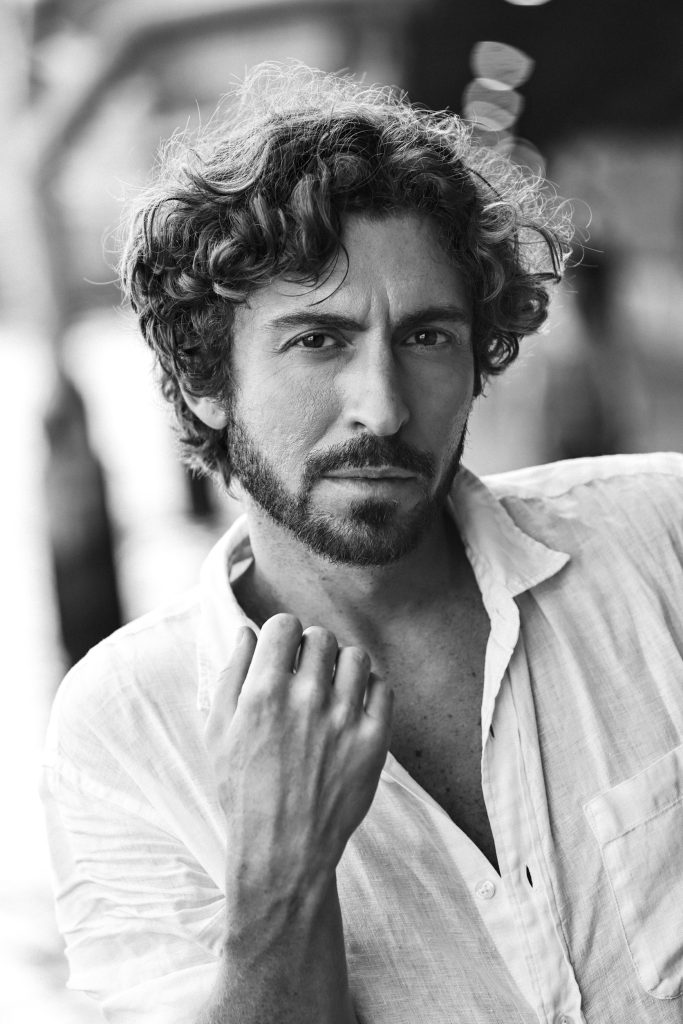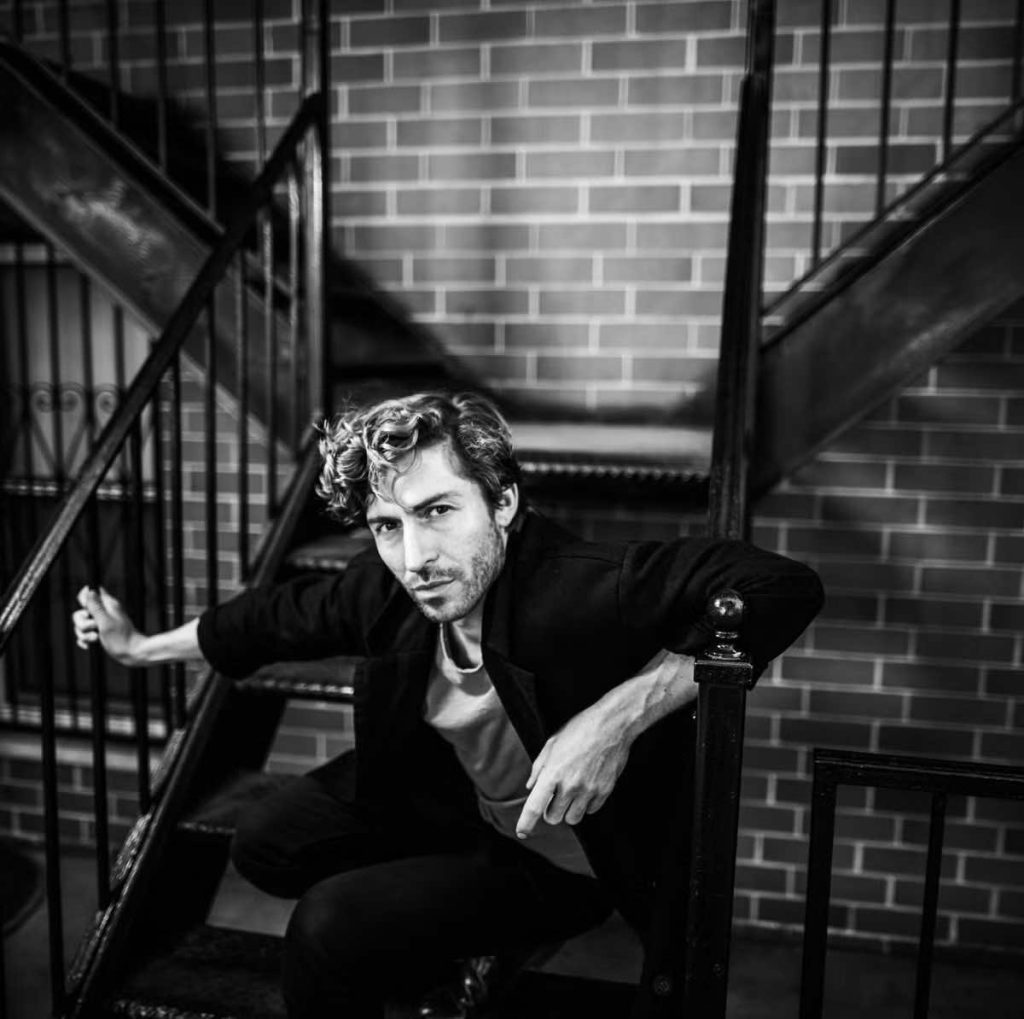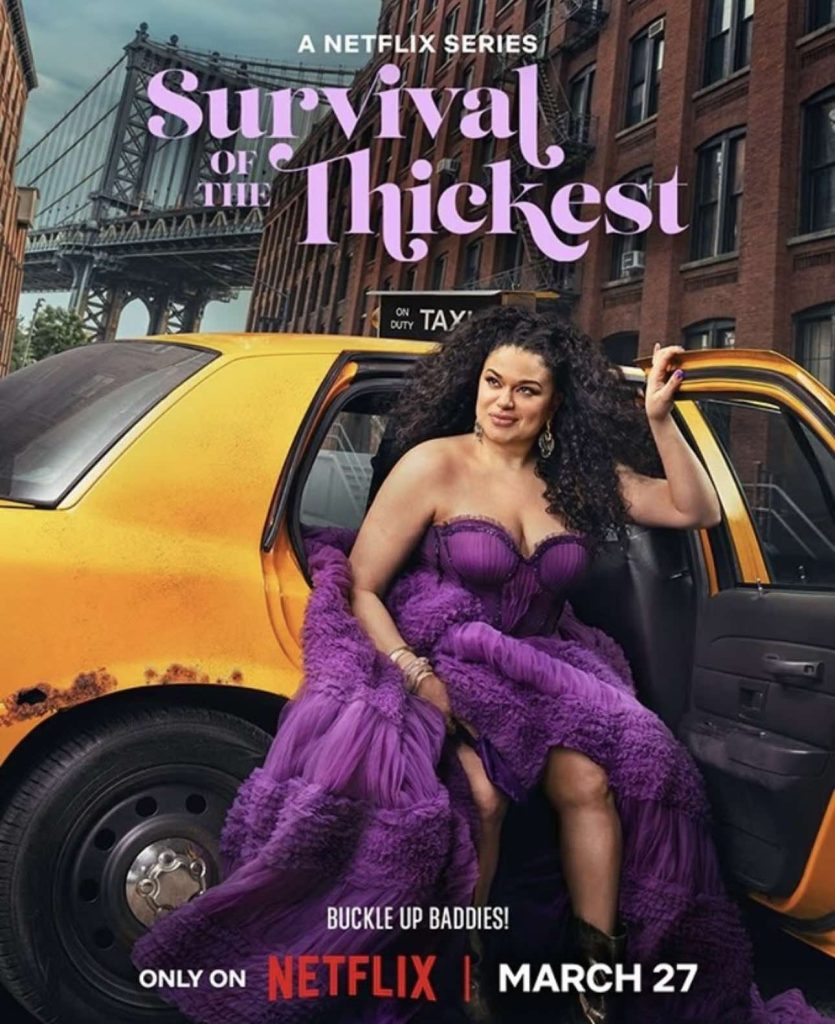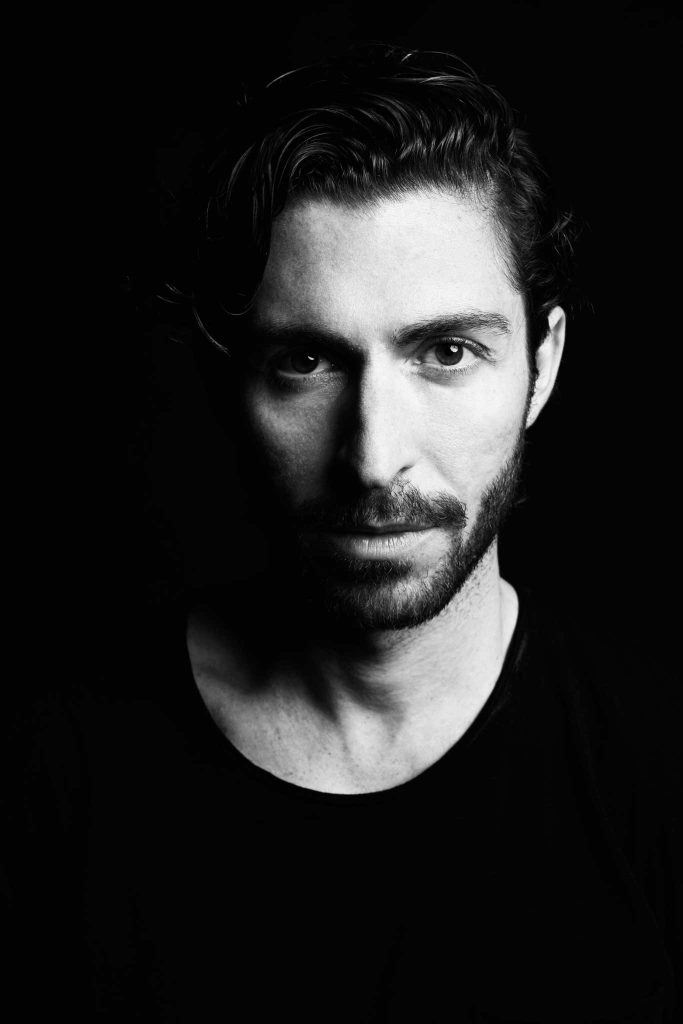
(Photo by @ogata_photo)
-Who is Jacopo Rampini?
I am an Italian-American actor and writer with a passion for storytelling across cultures, languages, and mediums. Born in Rome to Italian parents, I grew up immersed in a world of books, art, and travel, living in Paris, Milan, San Francisco, and New York. This rich, multicultural upbringing deeply shaped my identity and creative path, inspiring me to become a storyteller who moves between languages, cultures, and artistic disciplines.
Tell us about your artistic journey:
I’m an Italian-American actor and writer. I was born in Rome, but my childhood was marked by constant movement—Paris, Milan, San Francisco, and eventually New York—due to my parents’ international careers. My father is a writer and my mother a teacher, so I was raised in an environment that celebrated culture, language, and the arts. To this day, I define myself as multilingual and multicultural. That duality is the foundation of my artistic journey.
As a teenager, I wanted to become an actor. Then I fell in love with poetry and dreamed of being a French poet. I studied literature at the Sorbonne in Paris, captivated by the decadent movement and the beauty of language. When I moved to New York, I rediscovered acting and trained at the American Academy of Dramatic Arts. After three years of conservatory, I began working on stage—first at the Williamstown Theatre Festival and later off-Broadway.
Eventually, I gravitated toward film and television. Today, I aim to bring these two passions together. I’ve written a novel that I’m adapting into a screenplay, developing it as a television series. I see myself primarily as a storyteller—whether through performance or writing—and I hope to keep building bridges between these art forms and the cultures I belong to. My artistic journey is one of blending, crossing, and uniting worlds, and the stories I want to tell reflect that.

(Photo by Gianluca Vassallo)
Tell us about the time when Barack and Michelle Obama walked into the restaurant where you were working:
Like many artists in New York, I worked as a waiter to support myself while pursuing acting. One of those jobs was at Via Carota, a small Italian restaurant in the West Village known for its food and its clientele.
Like so many other experiences I had in New York, it started with someone taking a chance on me. The two chefs—one Italian, one American—hired me even though I had no prior experience. They taught me everything, from opening a bottle of wine to navigating a full dining room at high speed. It was a demanding place, but if you were willing to work hard, they gave you the opportunity to prove yourself. That’s something I’ve always admired about the U.S.—the belief that effort, curiosity, and resilience can still open doors.
After 3 years working at Via Carota, on March 10, 2017, I was assigned to a private table that, I was quietly told, would be for the Obamas. Barack, Michelle, and their daughter Malia arrived with their usual security detail, but once seated, they made it clear they just wanted a quiet evening together. I introduced myself simply: “Hi guys, my name is Jacopo, and I’ll be your waiter tonight.” Barack smiled—”That’s a cool name. Where are you from?” “Italy, sir.”
What struck me most about that night wasn’t the fame or the security protocols. It was the dynamic at the table. This wasn’t a former president and first lady out for a high-profile dinner—it was two parents doing their best to guide their daughter as she figured out what kind of person she wanted to become. Malia led the conversation; Michelle was warm and empathetic; Barack listened closely, offering clear and thoughtful advice.
For all the attention they drew, that evening was intimate and grounded. And I happened to be the Italian waiter quietly serving dinner while a family worked through the same questions I myself have often faced with my own parents.
You have an Italian film history in a New York context. What are the differences between the Italian and American film industries?
The differences are significant, but they’re also what make the idea of bridging the two so exciting. I trained and worked in the American film industry, particularly in New York. It’s a fast-paced, highly efficient system with vast global reach, thanks to the dominance of the English language and the cultural power of American entertainment. Big productions, big budgets, and star-driven content allow for incredible scale and influence.
Italy, on the other hand, has a more artisanal approach. Its productions are often smaller, more intimate, and driven by the unique vision of the director. There’s a long tradition of *cinema d’autore*, and many Italian films are deeply rooted in the country’s history, language, and culture. This can make them harder to export, but it also gives them a distinct soul.
I believe there’s great potential in making Italian stories more accessible to international audiences—without losing their authenticity. My goal is to help create that bridge, finding ways to connect the narrative depth of Italian cinema with the broader reach of international platforms.

What do you not like about the world, and what would you change?
I remember a time before cell phones and social media, when human connection felt more direct and less filtered. Technology is a powerful tool, but sometimes I worry it has diluted the richness of face-to-face interaction—especially in a craft like acting, which is so dependent on empathy and presence.
There’s no going back, and I don’t believe in nostalgia for its own sake. But perhaps the increasing presence of technology in our lives will eventually lead us to value what we’ve lost—to reconnect with the human dimension in a deeper way.

(Photo by Leonardo Bertuccelli)
How do you imagine cinema in 100 years?
Cinema is the youngest of the arts, and it’s evolving rapidly. In 100 years, it will likely be shaped by technologies we haven’t even conceived yet—augmented realities, neural storytelling, or something completely different. But I believe the emotional core of cinema will remain unchanged.
As we move forward, I think we’ll look back with even greater admiration at the pioneers—Fellini, Kubrick, Bergman—who created masterpieces with relatively limited tools. Their work will continue to inspire, reminding us that technology serves the story, not the other way around.
What is your impression of WILD FILMMAKER?
WILD FILMMAKER is doing something essential—amplifying international voices and making space for artists who want to be heard across borders. It’s creating a platform where diverse stories can find a global audience, and that’s something I deeply believe in. It’s building a bridge, just like I try to do in my own work. We’re on the same path, and I’m grateful to be part of that vision.

